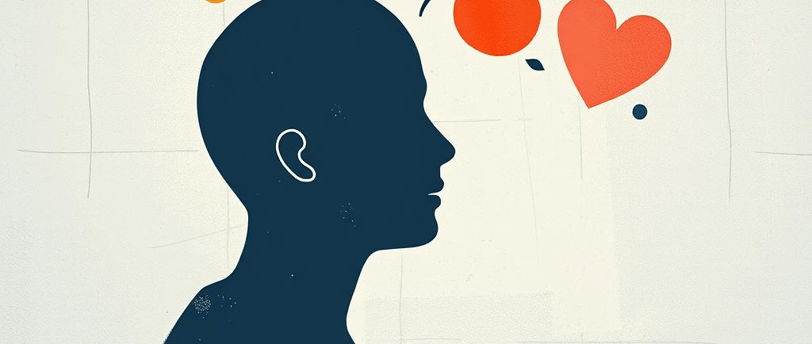Understanding Mental Health: Signs to Watch For
🧘WELLNESS TIPS


In today's fast-paced world, mental health has become a vital topic of discussion. While many people focus on physical well-being, mental health is equally important, serving as the foundation for our emotional and psychological resilience. Understanding mental health can empower us to lead fulfilling lives, nurture our relationships, and navigate the complexities of daily challenges. This article seeks to shed light on mental health, highlighting key signs to watch for in ourselves and others.
What Is Mental Health?
Mental health encompasses our emotional, psychological, and social well-being. It influences how we think, feel, and act, impacting our decision-making processes, the way we relate to others, and how we manage stress. Mental health is crucial not just for individuals but for communities as a whole, affecting everything from workplace productivity to school performance.
Like physical health, mental health exists on a spectrum. Everyone experiences fluctuations in their mental well-being. However, when these fluctuations turn into persistent issues, they can pose serious challenges, warranting attention and, in some cases, professional help.
Recognizing Signs of Poor Mental Health
Understanding the signs of poor mental health is the first step in addressing it. Being aware of these signs can help identify when it’s time to seek support, both for ourselves and those around us. Here are some common indicators to watch for:
1. Changes in Mood
Everyone has bad days, but if you or someone you know experiences prolonged feelings of sadness, irritability, or mood swings that interfere with daily life, it may represent a more significant issue. Mood changes can manifest as feeling overwhelmed by daily responsibilities or a sense of hopelessness that persists over time.
2. Withdrawal from Activities
A classic sign of mental distress is withdrawing from social activities that one used to enjoy. If you notice that a friend or family member is spending more time alone or avoiding previously enjoyed hobbies, it may indicate an underlying emotional struggle. This withdrawal can also manifest as reduced interest in work or school and declining performance.
3. Changes in Sleeping Patterns
Mental health issues often manifest through sleep disturbances. Insomnia, oversleeping, or disturbed sleep patterns can all be signs of anxiety or depression. It’s important to listen to your body if you find yourself struggling to sleep or feeling excessively tired during the day.
4. Changes in Appetite or Weight
Significant weight loss or gain, along with changes in appetite, can indicate an imbalance in mental health. Some individuals might find comfort in food during stressful times, while others may lose their appetite entirely. Being sensitive to these changes in yourself or a loved one is essential.
5. Increased Sensitivity to Sensory Input
Sometimes, our mental state influences our ability to tolerate everyday stimuli. If you find yourself feeling overwhelmed by noise, light, or even social interaction that was manageable before, it may indicate heightened anxiety or stress. Being overly sensitive to your environment can signal that mental health is at stake.
6. Decline in Physical Health
There’s a strong connection between mental and physical health. Chronic stress or anxiety can lead to headaches, stomach problems, and other bodily symptoms. If you're experiencing unexplained physical ailments that don't have a clear medical cause, it might be worth examining your mental health.
7. Substance Abuse
Turning to substances like alcohol, drugs, or even excessive caffeine can be a misguided attempt to cope with emotional pain or stress. If you notice an increase in substance use among yourself or others, it may signal a need for deeper emotional support.
8. Difficulty in Concentrating
Mental health issues like anxiety and depression can cloud our thinking. If you find it challenging to concentrate, make decisions, or remember things, it may reflect underlying mental health issues. This lack of focus can affect work, studies, and personal life, leading to a sense of frustration.
How to Support Mental Health
If you or someone you know is displaying signs of poor mental health, it’s important to address the situation compassionately. Here are several ways to offer support:
1. Open the Lines of Communication
Many people struggling with mental health issues often feel isolated. Encourage an open dialogue by creating a non-judgmental space where feelings can be shared without the fear of stigma. Sometimes, simply listening to someone can be more helpful than offering unsolicited advice.
2. Advocate for Professional Help
If the signs are persistent and concerning, encourage seeking help from a mental health professional. Therapy can provide the tools needed to navigate mental health challenges, offering personalized strategies for coping and recovery.
3. Encourage Healthy Coping Techniques
Engaging in physical activity, practicing mindfulness through meditation, or spending time in nature can significantly enhance mental well-being. Encourage you or loved ones to engage in healthy coping strategies that resonate with individual preferences.
4. Stay Connected
Social support is crucial for maintaining mental health. Make an effort to check in with friends and family regularly, fostering connections that can provide comfort and support during tough times.
5. Be Patient
Recovery is a journey that takes time. If you’re supporting someone navigating their mental health challenges, understand that setbacks may occur. Patience and ongoing support can make a significant difference.
Conclusion
Understanding mental health and recognizing the signs of distress is essential in today's society. By educating ourselves and fostering open conversations, we can create a supportive environment that prioritizes mental well-being. Remember, taking the first step towards mental health awareness not only helps ourselves but also encourages others to prioritize their mental wellness. If you or a loved one is experiencing difficulties, seeking help is a sign of strength, paving the way for a healthier, happier life. Remember, there’s no shame in reaching out; everyone deserves to be heard and supported in their mental health journey.
